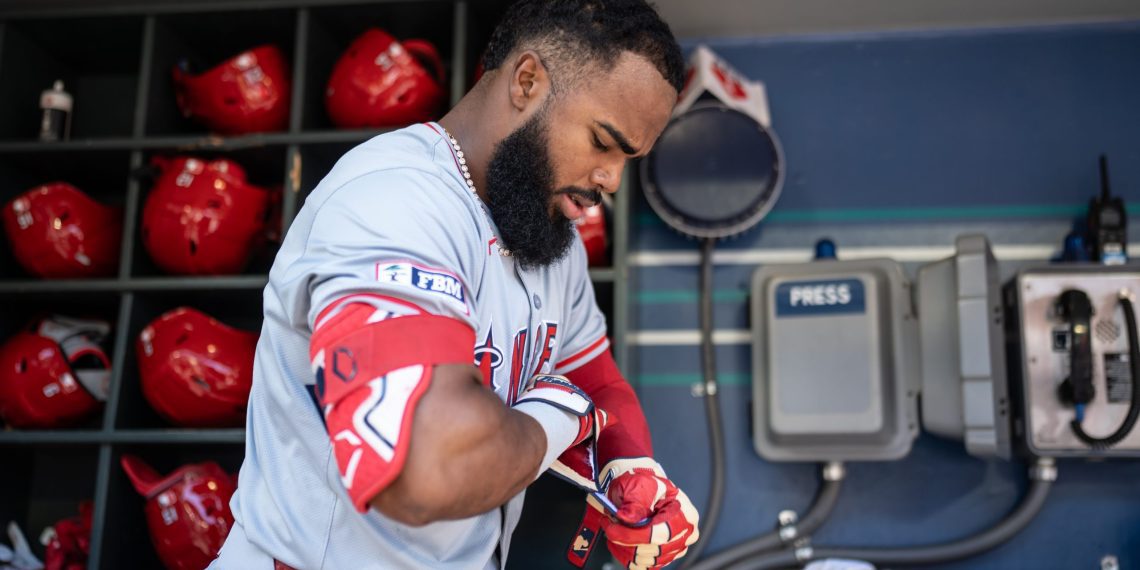Angels’ Loss in Luis Rengifo’s Arbitration Case Unveils Organizational Dysfunction
The recent arbitration case involving Luis Rengifo and the Los Angeles Angels has shed light on deeper organizational issues plaguing the team. Rengifo emerged victorious in the arbitration hearing, securing a salary of $5.95 million for the upcoming season, a slight increase from the $5.8 million initially offered by the Angels. This victory marks the second time in three years that Rengifo has challenged the team in arbitration and won, underscoring a recurring pattern of discord between player and organization.
The Significance of Rengifo’s Victory
While arbitration disputes are not uncommon in professional sports, the contentious nature of this specific case, centered around a mere $150K difference, raises eyebrows. The Angels’ protracted handling of the arbitration process reflects questionable decision-making within the organization, hinting at deeper-rooted issues beyond financial disagreements.
Rengifo, despite not being a standout star, plays a crucial role for the Angels due to his positional versatility and switch-hitting capabilities. As he enters his prime at age 28, coming off a promising statistical season marred by injury, Rengifo represents a player with potential long-term value for the team. However, the Angels’ prioritization of financial savings over nurturing player relationships and strategic planning raises concerns about their commitment to fostering a cohesive team culture and securing future talent.
Cultural Reflections on the Angels’ Approach
Beyond the immediate implications of the arbitration case, the Angels’ handling of the Rengifo situation underscores broader cultural challenges within the organization. Owner Arte Moreno’s promises of upgrades, payroll enhancements, and a return to competitiveness have yet to materialize fully, despite initial positive strides. The failure to bridge the gap between intentions and outcomes highlights a disconnect that extends beyond individual player negotiations.
The reluctance to invest an additional $150K in Rengifo, despite its negligible impact on the budget, symbolizes a shortsighted approach that prioritizes frugality over fostering player loyalty and team cohesion. This mindset not only risks alienating current players but also undermines the Angels’ ability to attract and retain top talent in a competitive market.
Contrasting Strategies: Angels vs. Dodgers
A stark comparison arises when juxtaposing the Angels’ approach with that of their crosstown rivals, the Los Angeles Dodgers. The Dodgers’ reputation as a desirable destination for players stems from a strategic blend of financial resources and a commitment to fair compensation. By valuing players appropriately and cultivating a winning culture, the Dodgers have positioned themselves as a premier destination for top-tier talent.
In contrast, the Angels’ history of contentious negotiations and reluctance to invest in player relationships diminishes their allure as a competitive force in the league. The ripple effects of a tarnished reputation may deter free agents and hinder the team’s ability to assemble a championship-caliber roster, hindering their quest for sustained success.
Path to Redemption: Fostering a Winning Culture
For the Angels to reclaim their former glory and establish themselves as perennial contenders, a fundamental shift in organizational culture is imperative. Prioritizing player relationships, fair compensation, and a winning mindset are essential components of this transformation. By learning from the missteps exemplified in the Rengifo arbitration case and emulating successful models like the Dodgers, the Angels can chart a course towards sustained success and competitive relevance in the ever-evolving landscape of professional baseball.









